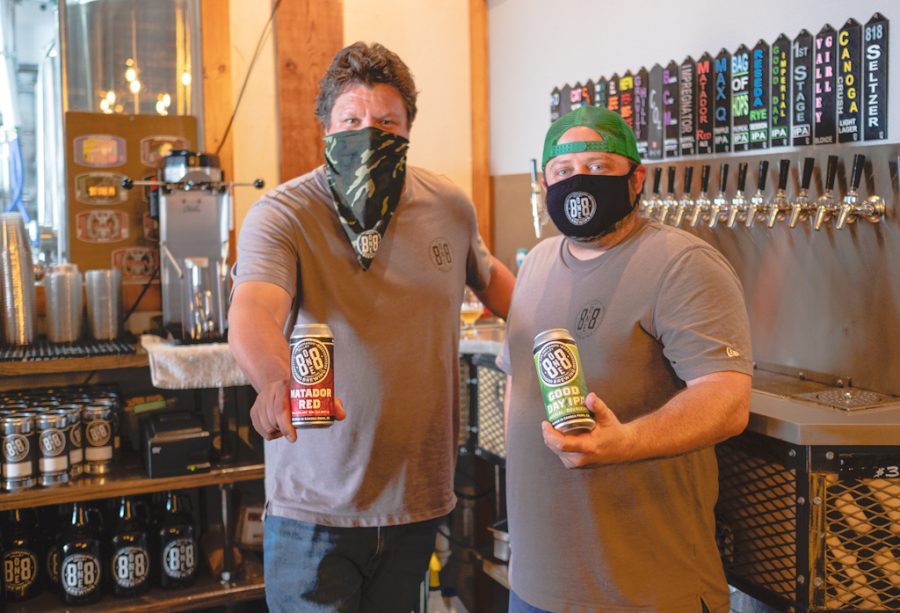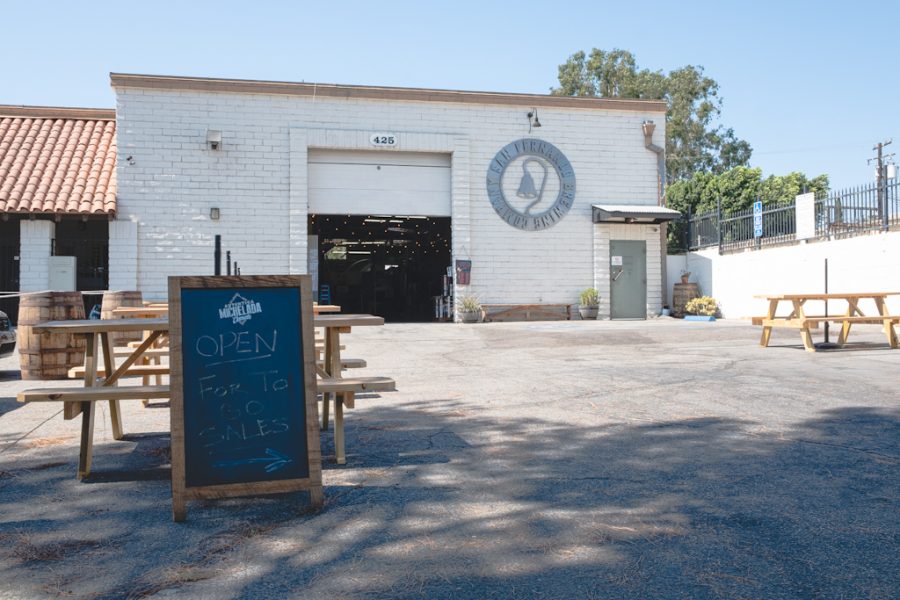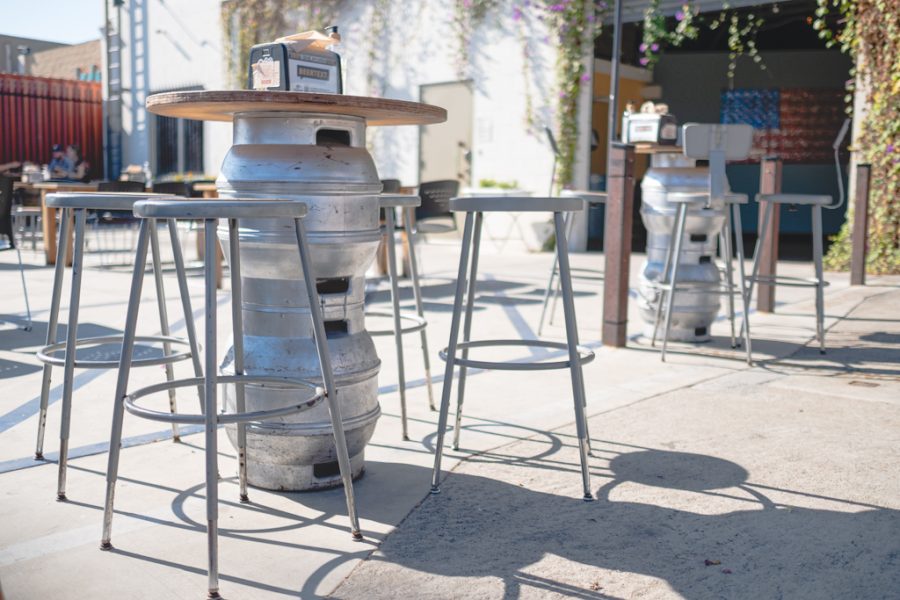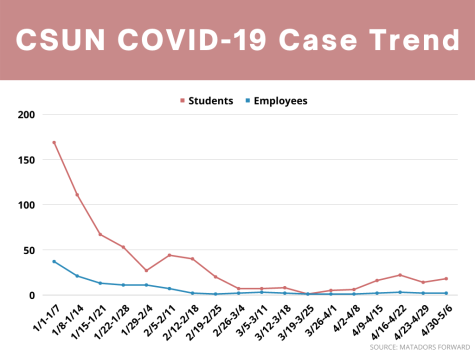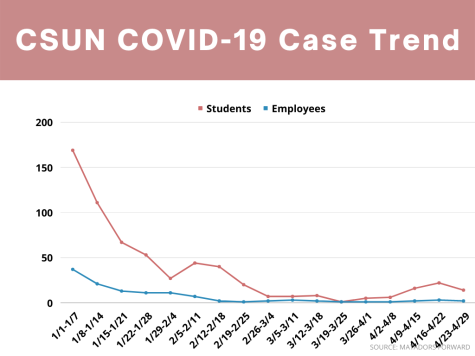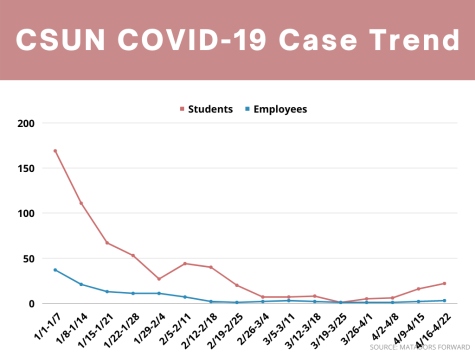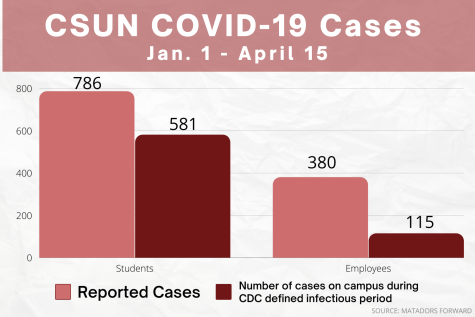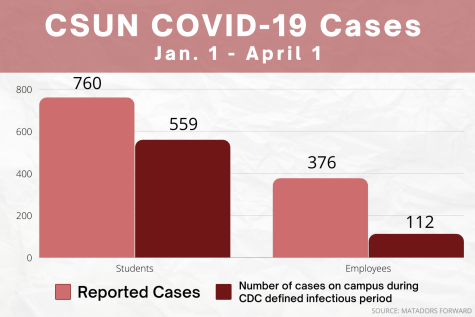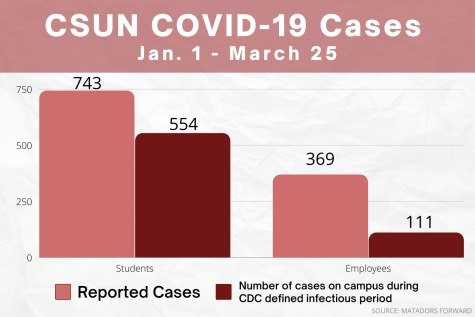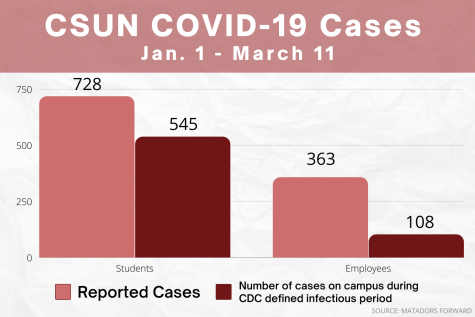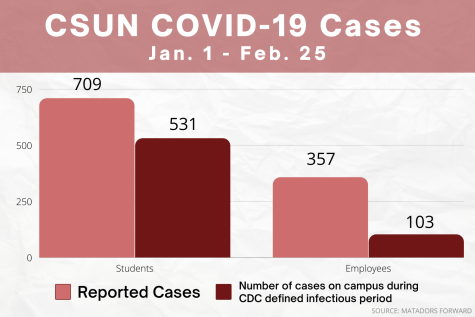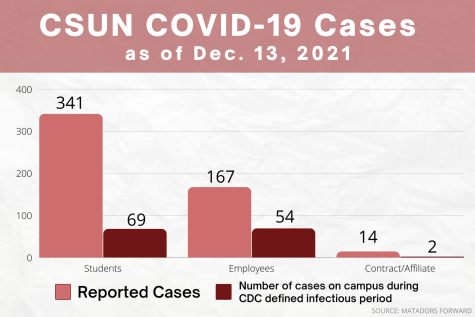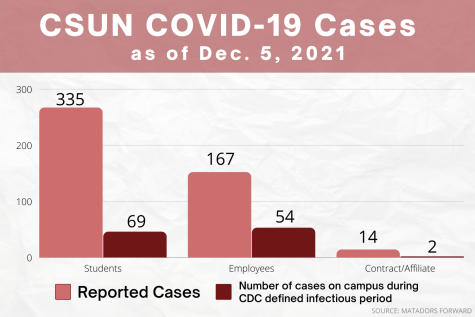Local breweries frustrated with government orders: ‘If restaurants can do it, we can do it too’
Derrick Olson, left, and Bryan Olson, co-owners of 8one8 Brewing, stands in their shop in Canoga Park, Calif., on Monday, Aug. 31, 2020.
September 4, 2020
The San Fernando Brewing Company did not celebrate their five-year anniversary with their patrons last week due to Los Angeles County’s updated guidelines preventing them from reopening and offering safe outdoor service.
An uptick in cases prompted L.A. County to announce on June 28 that bars, brew pubs and wineries will be closed. The county also revised the health order for breweries which does not allow them to provide outside dining if they do not have on-site kitchens. Breweries may not partner with a third-party food vendor to avoid the health order, a decision that has caused a frustration among breweries.
The San Fernando Brewing Company does not have an onsite kitchen, so the business now relies heavily on their beer to-go service, where customers can pick up their order or have it delivered to their homes.
Vic Chouchanian, the co-owner and co-founder of the brewery, said that these strict guidelines are not fair for businesses like his because there is no difference between a restaurant and a brewery providing the same services.
“If restaurants can do it, we can do it too. We just have to follow the guidelines,” Chouchanian said. “If I’m able to go to a restaurant to buy food and a drink and sit outside, I can do the same thing in a brewery, where I can buy a meal from a food vendor and beer and have a good time.”
The state previously allowed breweries to stay open as long as they served their alcohol products with a meal, but gave county lawmakers oversight to close the facilities if cases were soaring, according to the state guidelines.
“At this time, we are still seeing levels of community spread and high case counts of COVID-19. Because of that, we do not recommend businesses considered to be places where COVID-19 can spread easily to be reopened. Wineries, bars and other alcohol-focused businesses are in this high-risk category,” the Los Angeles County Department of Public Health said in an email to the Daily Sundial.
The confusion and changes from government officials has been a challenge itself. He said he took every precaution as possible investing about $5,000 in tables and umbrellas for outdoor service.
“People were buying beer when we partnered with food trucks and they really enjoyed sitting outside during the nice weather,” Chouchanian said. “But our sales decreased when the second shutdown was issued and that hurt us exponentially.”
Chouchanian appreciates the support he received from his customers, but said that the to-go sales are not close enough to what he would have made if there was outside dining.
A parking lot sits empty outside the brewery, with the occasional customer parking their car between the lines to pick up an order.
“We truly believe that our partnership with food vendors operating in an outdoor space is just as safe as any other outdoor restaurant situation that’s allowed to currently be open.”
-Los Angeles County Brewers Guild
Chouchanian explained the benefits that breweries can provide for people during these strange times, if they were allowed to open their outdoor seating.
“Breweries are not places to go to drink, it’s a community center where five or six people come to celebrate the little milestones they have, and restricting breweries from operating takes away the normalcy and calm that [people] need right now,” said Chouchanian.
Like the San Fernando Brewing Company, another local brewery, 8one8 Brewing, doesn’t have a kitchen. The only way the establishment can continue to operate is to provide to-go sales and delivery service.
Bryan Olson, co-founder of 8one8 Brewing, explained that every time there was a change in the government orders, he had to re-engineer the business to keep it going.
Olson noticed when the County issued the closure of breweries he saw a drop in the beer to-go service orders and assumed it had to do with the closed outside dining.
“Now that the consumer has the control of the dollar, they’re going to spend it where they want and if there’s a restaurant that’s open that’s serving beer, they can go spend time there versus only having the to-go option,” said Olson.
The lack of business has hurt the company’s finances substantially – losing about 40% to 50% of revenue since the stay-at-home order began. Luckily, they received a PPP loan which has helped the business stay afloat.
Olson said the health department’s response for not allowing third-party food vendors was that breweries are a place where people congregate together and when they sit down to have a beer and a meal, they’re not wearing a mask.
The categorization of breweries from government officials has been frustrating for the local breweries because they say they are able to abide by the same measures as restaurants.
“We truly believe that our partnership with food vendors operating in an outdoor space is just as safe as any other outdoor restaurant situation that’s allowed to currently be open,” Los Angeles County Brewers Guild said in their statement on August 24. “In many instances, we’ve even got more space!”
The only brewery in the San Fernando Valley that has a kitchen is MacLeod Ale Brewing Company, which has been able to provide outdoor service to customers.
The brewery serves a variety of pizzas and beer. Jennifer Febre, the co-founder of the brewery, said she used empty barrels as tables to expand their outdoor dining since they are able to use the whole parking lot.
Febre explained that she changed her business strategy numerous times to comply with the state and county orders, especially when a kitchen staff member tested positive for the COVID-19 virus.
For a whole week, she closed the pizza kitchen for a deep clean and made sure her staff tested negative before coming back to work.
Since she had to rely on the beer to-go service temporarily, she sympathises with other breweries who do not have kitchens.
“My heart bleeds out to our fellow breweries who are unable to open fully because they don’t have a kitchen,” Febre said. “I could imagine the blood, sweat and tears that brewers put into their business.”
To raise awareness and give a voice to breweries who are struggling financially, the Los Angeles County Brewers Guild, which promotes and protects over 90 brewery members, organized a five-day social media campaign starting Aug. 24, asking the Los Angeles County Board of Supervisors to allow breweries to partner with food vendors and offer safe outside dining outlined by the state guidelines.
“The Los Angeles County Brewers Guild and its 93 brewery members have done everything in our power to comply with every change in local and state health orders for these past 5+ months,” read the guild’s statement on their website. “We’ve had to make a hard pivot in our industry to amp up to-go sales, implement shipping and delivery.”
Brewery owners and their patrons sent emails and letters to the Board of Supervisors and tagged them on social media posts about the financial toll on the breweries. Supporters asked the Board of Supervisors to reconsider their decision in hopes of saving their businesses.
“I believe we did a good job in getting their attention out there and the Board of Supervisors can see now that amount of support that the community puts in the breweries,” said Olson.
